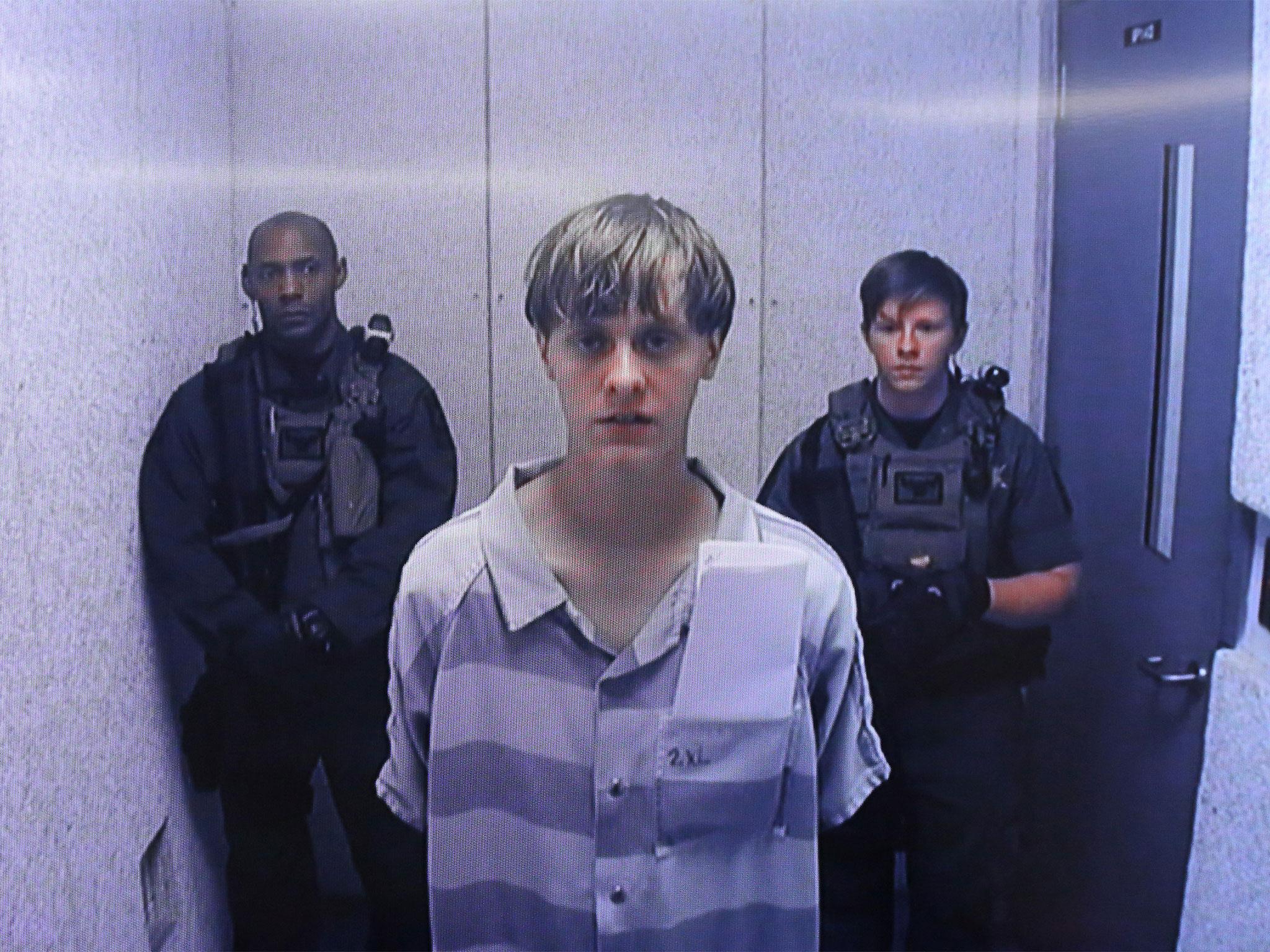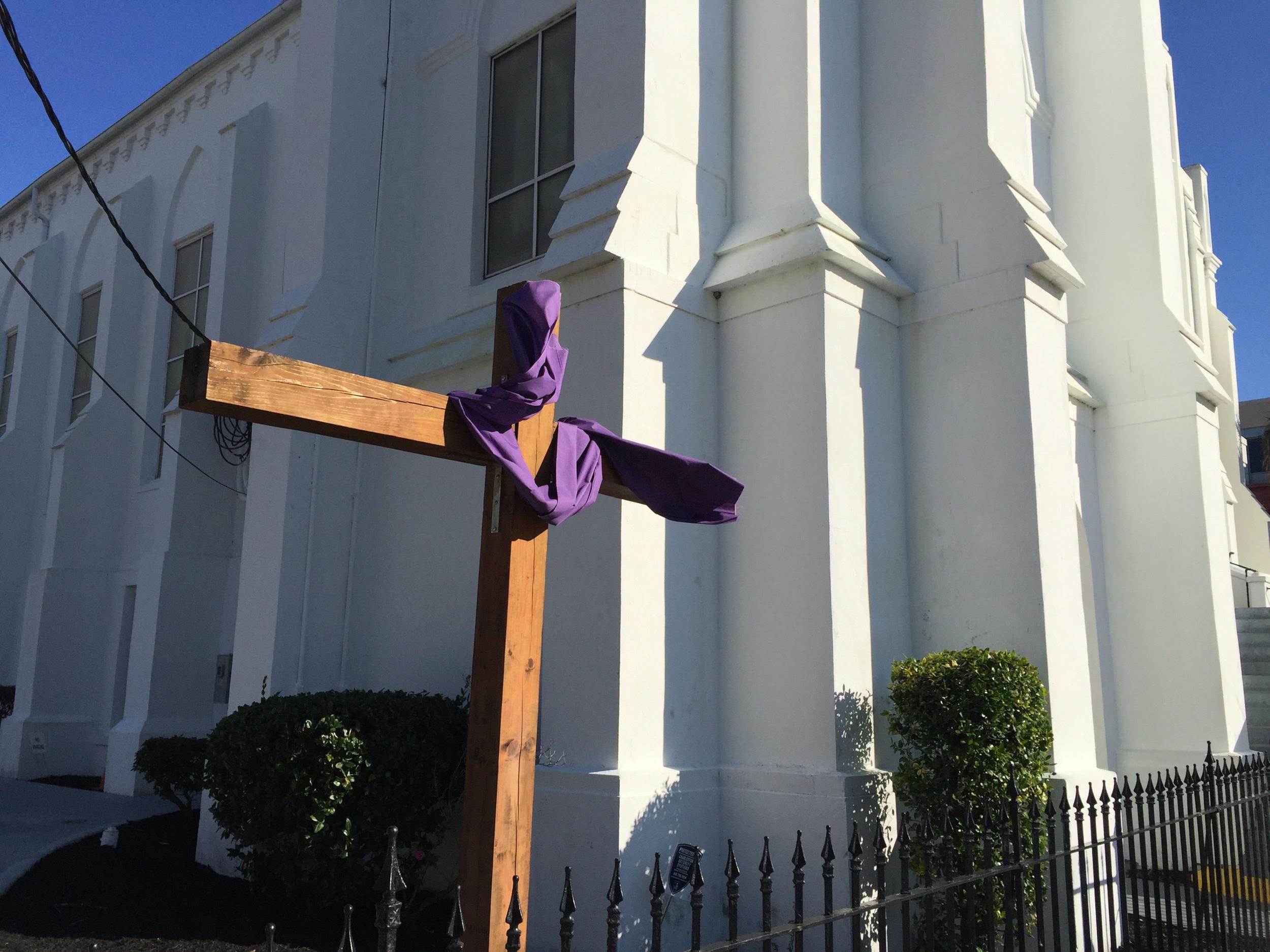Dylann Roof: Judge grants motion for alleged Charleston shooter to defend himself in federal trial
The 22-year-old is accused of fatally shooting nine members of a church in Charleston

Your support helps us to tell the story
From reproductive rights to climate change to Big Tech, The Independent is on the ground when the story is developing. Whether it's investigating the financials of Elon Musk's pro-Trump PAC or producing our latest documentary, 'The A Word', which shines a light on the American women fighting for reproductive rights, we know how important it is to parse out the facts from the messaging.
At such a critical moment in US history, we need reporters on the ground. Your donation allows us to keep sending journalists to speak to both sides of the story.
The Independent is trusted by Americans across the entire political spectrum. And unlike many other quality news outlets, we choose not to lock Americans out of our reporting and analysis with paywalls. We believe quality journalism should be available to everyone, paid for by those who can afford it.
Your support makes all the difference.A young white man accused of shooting dead nine black people in an historic black church has been given permission to represent himself in a trial that carries the death penalty.
A judge on Monday said Dylann Roof could act as his own lawyer and that he would reluctantly accept his “unwise decision” to do so. His lawyers had advised him not to.
The ruling by US District Judge Richard Gergel came on a day that jury selection resumed in the case. It had been halted last week while the judge heard medical testimony to determine whether or not the young man was mentally competent to stand trial.

After hearing from various experts, Judge Gergel decided that he was fit to be tried over the June 2015 shooting at the Emanuel African Methodist Episcopal Church in Charleston, South Carolina.
In this federal case, Mr Roof is charged with counts that include hate crimes and obstruction of religion. He also faces nine counts of murder and other charges in the state court system. His trial in that case is scheduled to start in January 2017.
The Associated Press said that from Monday, 516 potential jurors were to report to the courthouse to be individually questioned by the judge. When 70 qualified jurors are picked, lawyers can use strikes to dismiss those they do not want, until 12 jurors and six alternates are seated.
The judge had delayed the process, and ordered the competency hearing after Mr Roof’s lawyers suggested their client either did not understand the charges against him or could not properly help with his defence. The lawyers did not say what led them to question Mr Roof’s fitness for trial.
AP reported that the judge said he took the rare step of closing the hearing to the public and media because Mr Roof made statements to a psychologist that might not be legal to use at his trial and could taint potential jurors.
In his written order, the judge also did not make clear his reasoning. Last Friday, the judge said he refrained from releasing a transcript of the hearing for the same reason, reversing an earlier pledge to release a redacted transcript.
The relatives had complained about the secrecy surrounding the proceedings, but Judge Gergel said he had taken the steps in order to ensure Mr Roof received a fair trial over an incident that had received huge publicity.
According to police, Mr Roof sat through nearly an hour of prayer and bible study at the church with its pastor and 11 others before pulling a gun and opening fire.
In the aftermath of the shooting, an online manifesto was discovered that had been penned by Mr Roof in which he outlined a racist worldview. Also discovered were a series of photographs of him posing with a handgun, a confederate flag and at various sites associated with the US Civil War. He also posed for photographs at former slave plantations.
Join our commenting forum
Join thought-provoking conversations, follow other Independent readers and see their replies
Comments